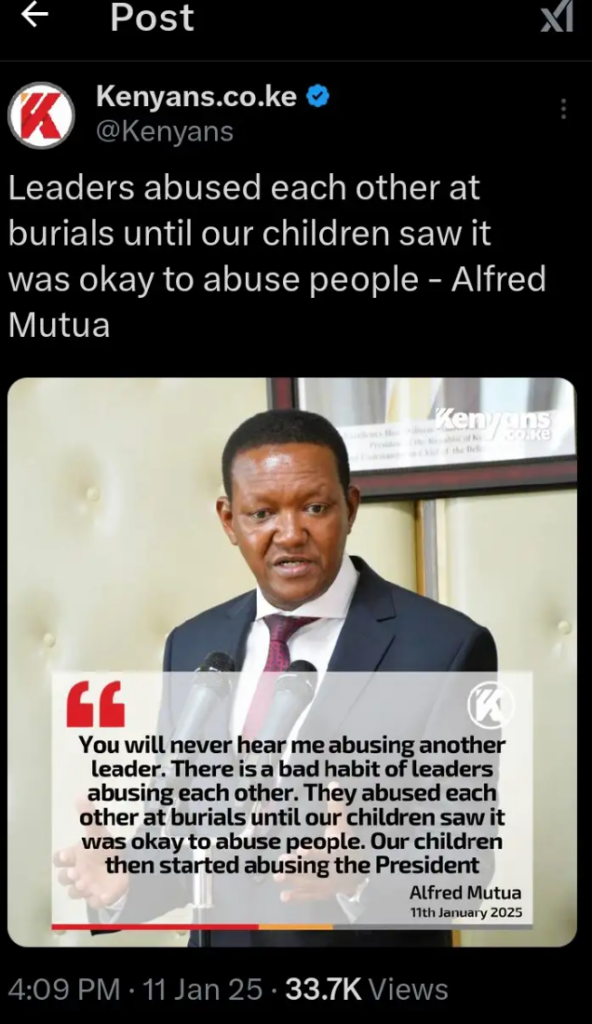Former Machakos Governor Alfred Mutua has raised concerns about the increasing trend of leaders publicly insulting one another.
Speaking at a recent event, Mutua condemned this behavior, emphasizing its harmful effects on society, particularly on children.
He highlighted how public insults among leaders, even during solemn occasions like funerals, have normalized disrespect and set a poor example for the younger generation.
Mutua firmly stated that he avoids abusing other leaders, pointing out the negative influence such actions have on societal values.
He explained that children often mimic the behavior they observe from adults, especially those in positions of power.

As a result, the frequent verbal attacks and harsh language used by some politicians have created a culture where disrespect is becoming normalized.
He expressed particular concern about young people feeling emboldened to insult others, including high-ranking officials like the president.
Mutua stressed the importance of leaders in shaping the values of society.
He argued that leadership should be about inspiring and guiding people, not teaching them to engage in personal attacks.
According to him, when leaders publicly abuse each other, it sends a damaging message to the community, undermining the moral fabric of society and encouraging division and hostility.
Calling for a return to civility, Mutua urged leaders to focus on constructive debates and the exchange of ideas.
He emphasized the need for mutual respect and unity, even in situations where there are disagreements.
Mutua warned of the long-term consequences of the current trend, suggesting that a society built on disrespect and division risks losing its moral foundation.
His remarks have sparked widespread conversations about ethical leadership and the role of politicians in promoting positive societal values.
Many Kenyans are now voicing support for a shift towards a more respectful and solution-oriented political culture.
There is growing recognition of the need for leaders to model behavior that fosters unity and respect, particularly for the benefit of future generations.
This call for change comes at a time when political discourse in Kenya has become increasingly marked by hostility and personal attacks.
Mutua’s appeal serves as a timely reminder of the critical role leaders play in shaping the character of society and the importance of setting a positive example for all citizens.


